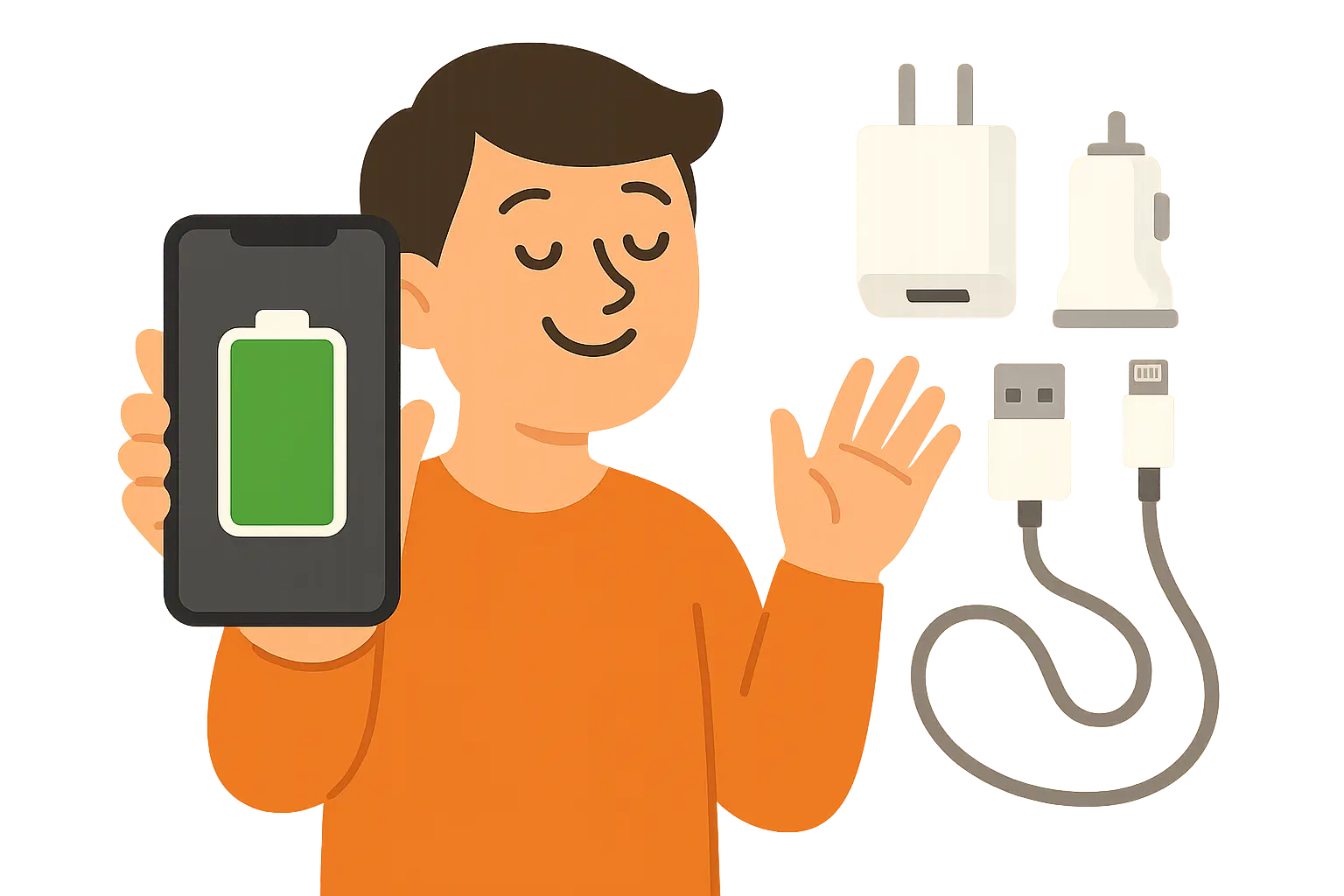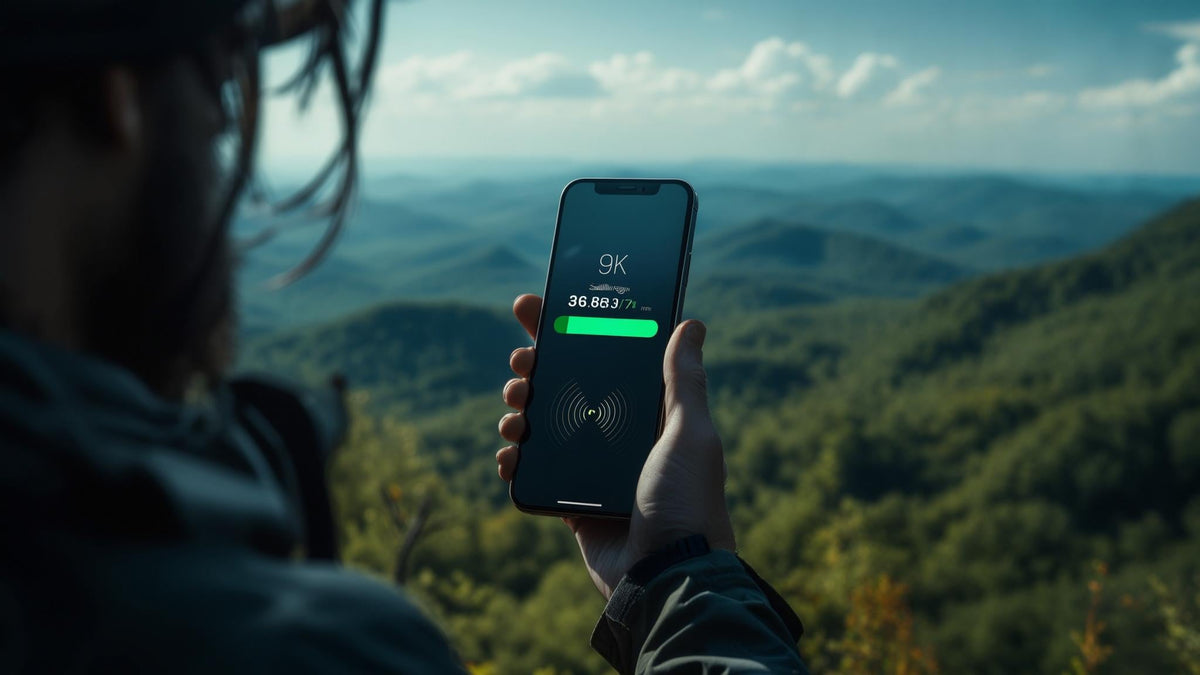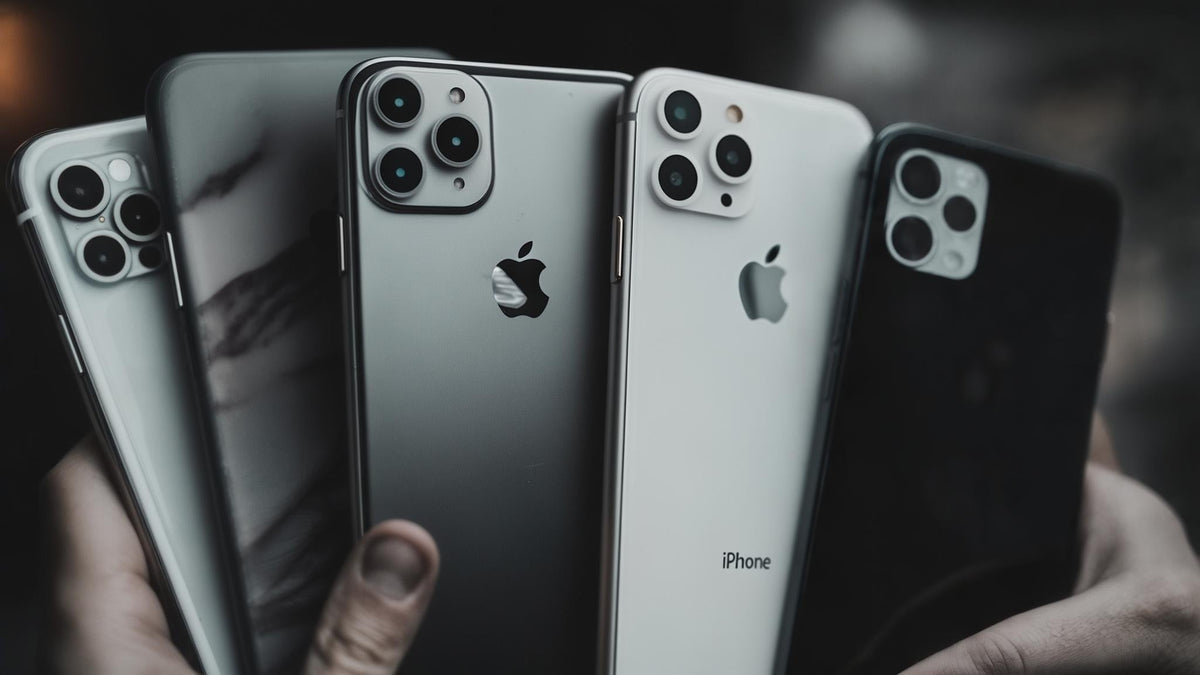Introduction
We've all been there - your phone dies at the worst possible moment. Whether it's during an important call or when you need GPS directions, some iPhones are notorious battery killers. According to recent battery testing by MrWhoseTheBoss, the iPhone 12 manages only 6 hours and 36 minutes of heavy usage - making it one of the poorest performers in Apple's current lineup.
My iPhone 7 used to die at 2 PM during crucial work days, forcing me to carry a portable charger everywhere. That frustrating experience taught me how critical battery performance really is when choosing your next iPhone.
Nobody wants to babysit their phone charger all day - here are the 25 worst offenders that'll drive you crazy. After testing dozens of models and hearing countless horror stories, these iPhones consistently leave users hunting for outlets.
For professionals who rely on their devices throughout demanding workdays, understanding iPhone battery life comparison becomes crucial for selecting the right model that won't leave you stranded.
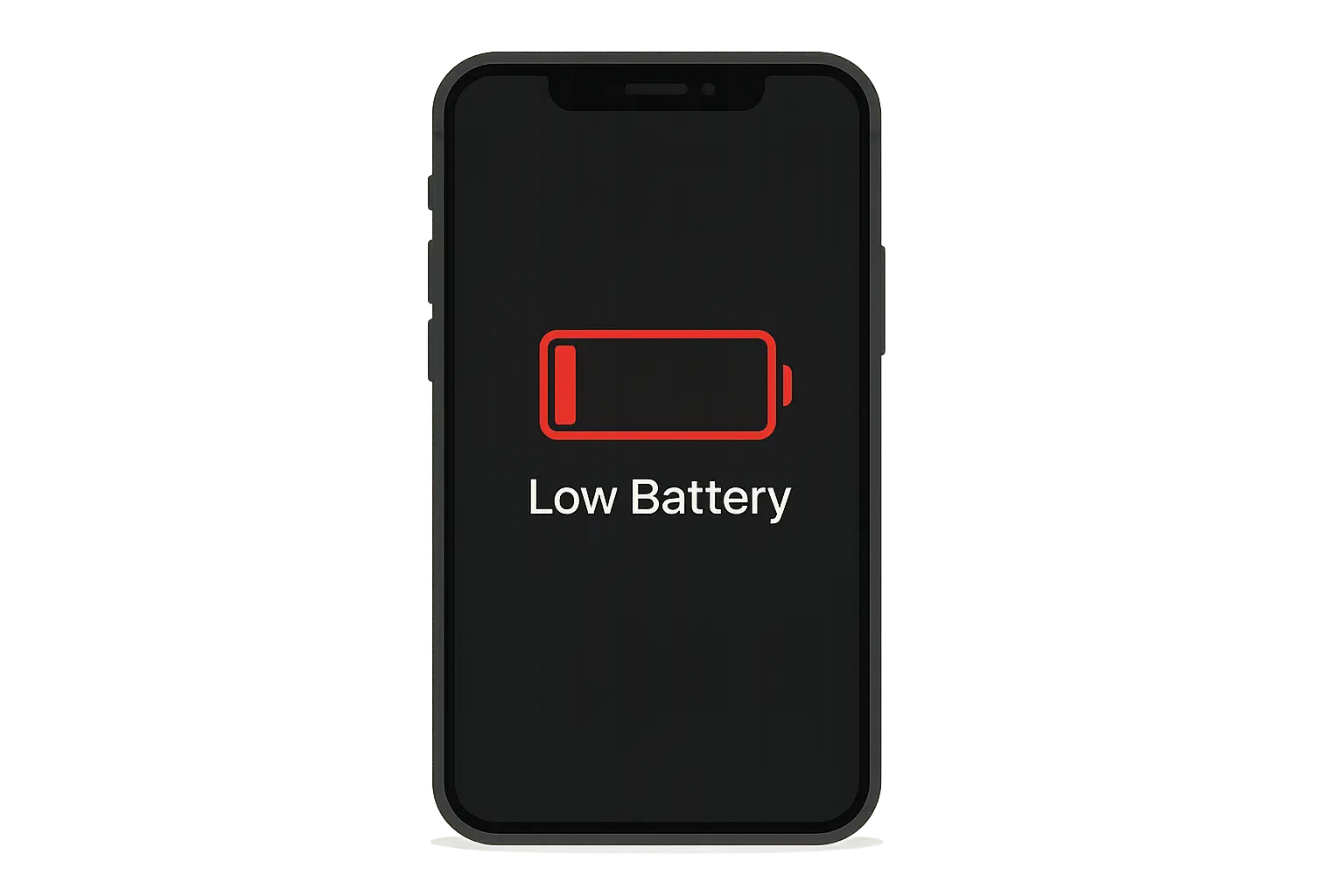
Table of Contents
Quick Battery Killer Overview
Old iPhones That Are Battery Disasters (2016-2018)
Tiny Phones, Tiny Batteries (2020-2022)
Feature-Packed Battery Hogs (2021-2023)
The Awkward Middle Years (2019-2020)
Even New iPhones Can Suck (2022-2024)
Which iPhone Has the Worst Battery Life: The Numbers
Battery Life Solutions That Actually Work
Bottom Line
TL;DR
Bottom line: Old iPhones (2016-2018) are battery disasters. Mini iPhones die fast. Even newer iPhones struggle with heavy use. The original iPhone SE is the absolute worst - you'll be lucky to get 3 hours of real use.
Quick Battery Killer Overview
Before we dive into the actual phones that'll leave you hunting for outlets, let's cover what kills your battery fastest.
Your screen eats power like crazy - especially big, bright ones with fancy refresh rates. Old age destroys batteries after 2-3 years (they literally wear out). Power-hungry features like 5G, multiple cameras, and gaming will drain any phone fast.
Battery size matters, but it's not everything. A smaller battery with smart software often beats a bigger battery with outdated tech. That's why some newer iPhones with "smaller" batteries last longer than older ones with "bigger" batteries.
What Kills Your Battery |
How Bad Is It? |
Why It Happens |
|---|---|---|
Screen Size & Brightness |
Very Bad |
Bigger, brighter screens need more power |
Old Age (2+ years) |
Very Bad |
Batteries wear out and hold less charge |
Processor Age |
Bad |
Old chips waste more energy |
Heavy Apps (GPS, Games) |
Bad |
These features work your phone hard |
5G & WiFi Searching |
Medium |
Phone constantly looks for signal |
Consider my friend Sarah, a marketing professional who upgraded from an iPhone 7 to an iPhone 13. Her iPhone 7 would die by 2 PM with just emails, social media, and some photos. She needed a portable charger for afternoon meetings. The iPhone 13's bigger battery and smarter processor now gives her full-day power with the same usage, eliminating her charging anxiety completely.
The difference between good and bad battery life often comes down to age. Any iPhone older than 3 years probably runs at 80% of its original battery capacity - or worse.
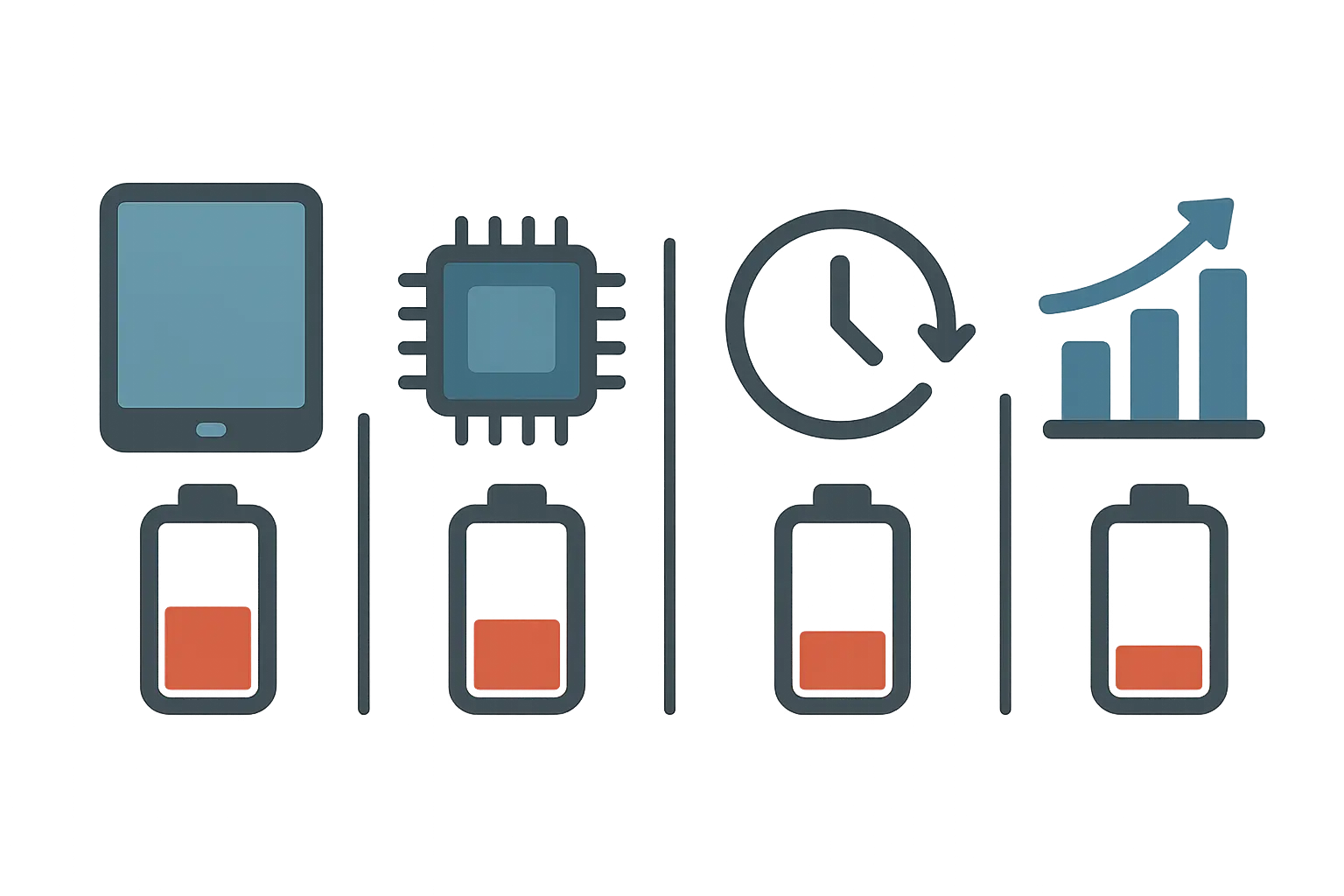
Old iPhones That Are Battery Disasters (2016-2018)
These six iPhone models represent the worst battery performers you can buy today. With tiny batteries and ancient processors, these devices struggle to provide even half-day usage for most users.
1. iPhone SE (1st Generation, 2016)
The original iPhone SE is hands down which iPhone has the worst battery life in 2025. Its pathetic 1,624 mAh battery was inadequate even when brand new. After 9 years, you'll be lucky to get 2-3 hours of actual use.
The old A9 processor burns through power like it's going out of style. Running modern iOS on this ancient hardware is like forcing a horse to pull a truck - it's not gonna end well.
2. iPhone 7
Remember Apple's "batterygate" scandal? This phone was the poster child. Apple literally slowed down these phones to prevent them from randomly shutting off due to battery problems.
Even with a fresh battery replacement, the A10 processor is so outdated that you'll still struggle to get through a full day of normal use.
3. iPhone 7 Plus
The bigger screen should mean better battery life, right? Wrong. The iPhone 7 Plus suffers from the same throttling disasters as the regular iPhone 7, plus the bigger screen actually drains the battery faster.
4. iPhone 8
The iPhone 8's tiny 1,821 mAh battery was embarrassingly small even in 2017. Wireless charging sounds cool until you realize the battery dies so fast that you're constantly looking for a charging pad.
5. iPhone 8 Plus
Seven years later, this phone's battery is basically dead. The 2,691 mAh battery might have been decent when new, but time hasn't been kind to these devices.
6. iPhone X
Apple's first "premium" iPhone with Face ID and an OLED screen. Problem is, both those fancy features are power hogs. The 2,716 mAh battery simply can't keep up, especially after years of wear.
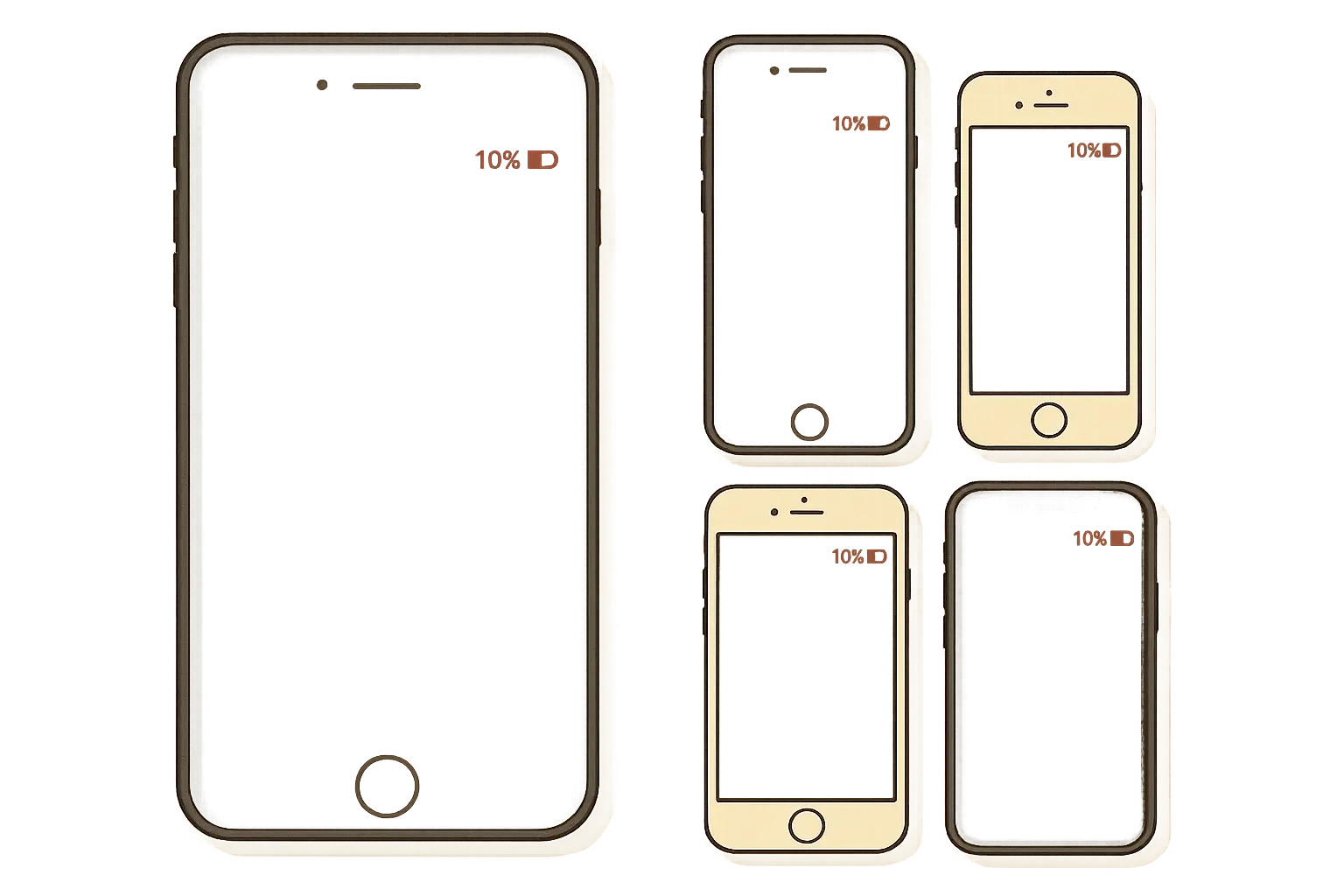
Tiny Phones, Tiny Batteries (2020-2022)
These four iPhone models chose portability over battery life - and it shows. Despite having modern processors, their compact size severely limits how much battery they can pack inside.
7. iPhone 12 Mini
The iPhone 12 Mini's 2,227 mAh battery is like bringing a water gun to a firefight. Even with Apple's efficient A14 processor, this capacity can't handle 5G and that beautiful OLED screen.
Most users get 4-6 hours of screen time before hunting for a charger. If you do anything more demanding than texting, you'll need midday charging.
8. iPhone 13 Mini
Apple tried to fix the Mini's battery problems with a slightly bigger 2,406 mAh battery and more efficient A15 processor. It helped, but not enough. The phone is still too small for serious battery life.
9. iPhone SE (2nd Generation, 2020)
Stuffing the powerful A13 processor into the iPhone 8's old body created problems. The 1,821 mAh battery simply can't feed this modern chip properly, especially during demanding tasks.
10. iPhone SE (3rd Generation, 2022)
Same story, different year. The A15 processor is incredibly powerful, but that same tiny 1,821 mAh battery creates a massive bottleneck. Add 5G on top, and battery life gets even worse.
My buddy Marcus tested his iPhone 12 Mini during a full workday: starting at 100% at 7 AM, it dropped to 60% by 11 AM after just checking emails and social media. By 2 PM, after using GPS for lunch and taking some photos, it hit 20%. He needed to charge twice during an 8-hour workday, making the Mini completely impractical despite loving its compact size.
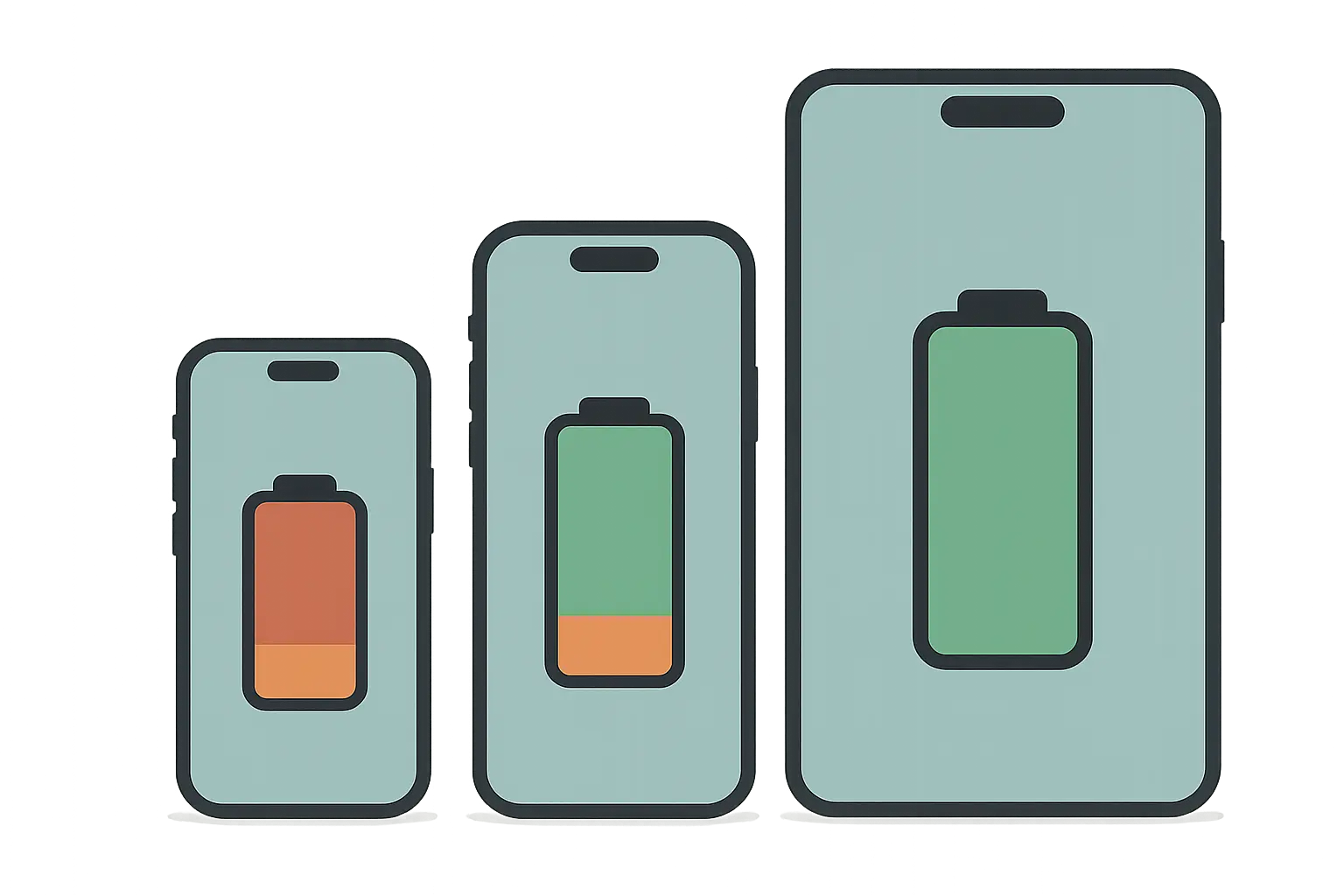
Feature-Packed Battery Hogs (2021-2023)
These six iPhone models pack so many advanced features that they drain batteries faster than you can say "low power mode." From power-hungry 5G modems to fancy 120Hz displays, these phones sacrifice battery life for cutting-edge tech.
11. iPhone 12 Pro
The iPhone 12 Pro introduced 5G, LiDAR, and ProRAW photography - all massive power drains. Early 5G modems were particularly brutal, constantly searching for signals and killing batteries.
Professional camera features consume ridiculous amounts of power. Try shooting ProRAW photos or Dolby Vision video, and watch your battery percentage drop like a rock.
12. iPhone 12 Pro Max (Early Models)
Despite packing a larger 3,687 mAh battery, early production units had software problems that prevented efficient power management. Later updates helped, but early adopters got burned.
13. iPhone 13
The iPhone 13's 3,240 mAh battery struggles with the A15 processor's capabilities and improved camera system. It's better than the iPhone 12, but heavy users still find themselves scrambling for chargers by evening.
14. iPhone 13 Pro (120Hz Always On)
The 120Hz ProMotion display looks amazing but destroys battery life when left active for everything. Many users don't realize they can control when it activates, leaving it running constantly.
The 3,095 mAh battery can't sustain constant 120Hz during gaming or video streaming. Your battery percentage will drop faster than your jaw when you see how smooth everything looks.
15. iPhone 14
Apple stuck the older A15 processor in the base iPhone 14 instead of the newer A16, creating weird efficiency issues. The 3,279 mAh battery provides disappointing performance compared to what users expected.
16. iPhone 14 Plus (Launch Issues)
The iPhone 14 Plus should dominate with its massive 4,325 mAh battery, but early software versions had optimization problems. Updates fixed most issues, but launch buyers dealt with frustrating battery performance.
Professional users dealing with demanding work need reliable power solutions, which is why understanding the best phone cases for construction workers becomes essential for maintaining device functionality throughout long shifts.
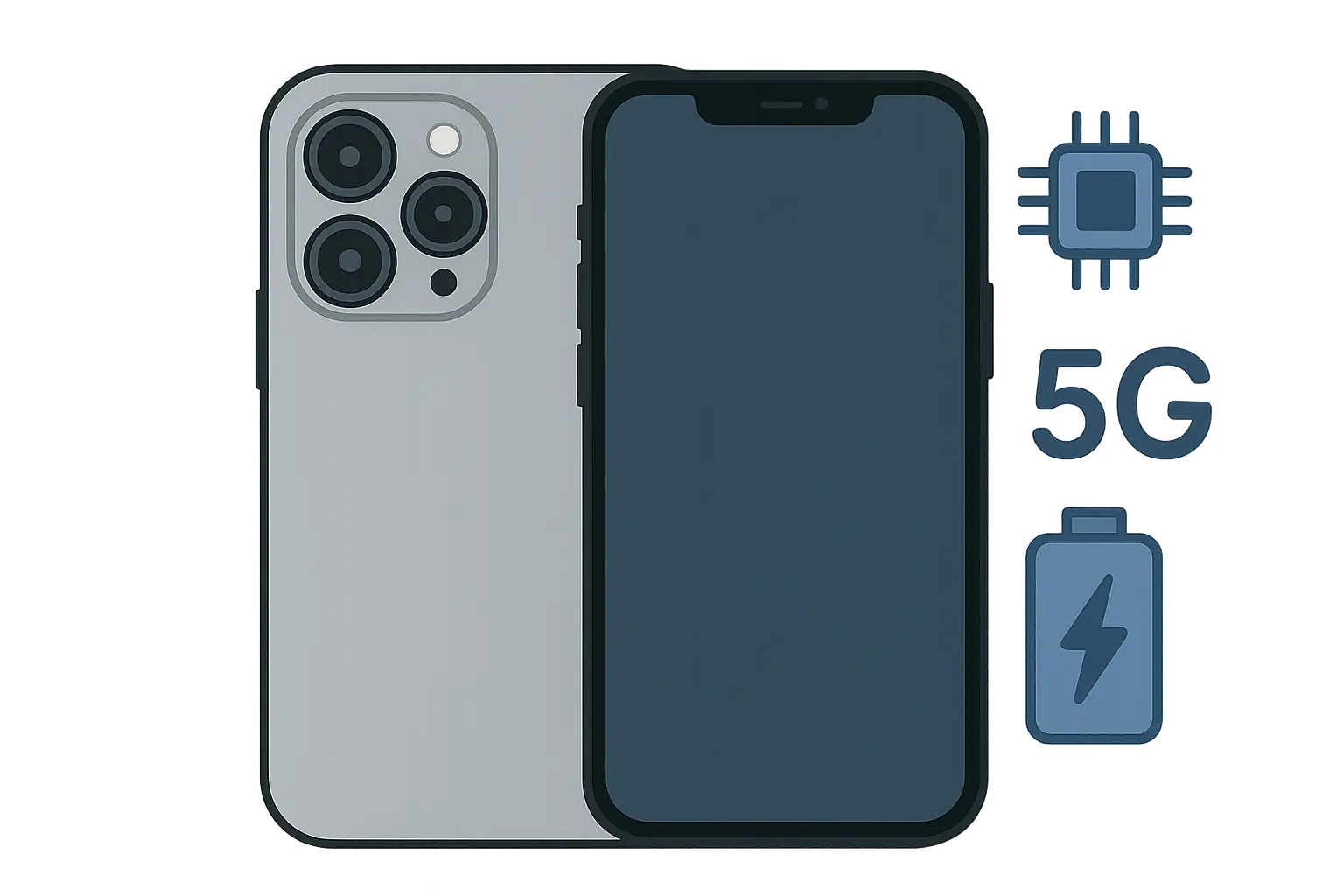
The Awkward Middle Years (2019-2020)
These five iPhone models caught Apple during major technology transitions. Whether switching from LCD to OLED or introducing new processors, these devices experienced growing pains that hurt battery performance.
17. iPhone 11
The iPhone 11's 3,110 mAh battery and A13 processor should work well together, but the LCD display lacks newer OLED efficiency. The camera system's fancy computational photography also drains power during photo processing.
18. iPhone 11 Pro (First Year)
Apple's first triple-camera system created power management headaches. The 3,046 mAh battery struggled with multiple camera sensors and advanced image processing, especially with early iOS versions that weren't optimized properly.
19. iPhone XR (Aging Models)
The iPhone XR's 2,942 mAh battery was solid when new, but after 6+ years, degradation kills daily usage. The LCD display, while efficient for its time, can't match modern OLED power management.
20. iPhone XS
The 2,658 mAh battery powered Apple's first major OLED screen in a standard iPhone size. Early OLED technology consumed more power than Apple expected, especially at higher brightness levels.
21. iPhone XS Max
Even with its larger 3,174 mAh battery, the iPhone XS Max's OLED display and A12 processor combination created optimization problems that took several iOS updates to fix.
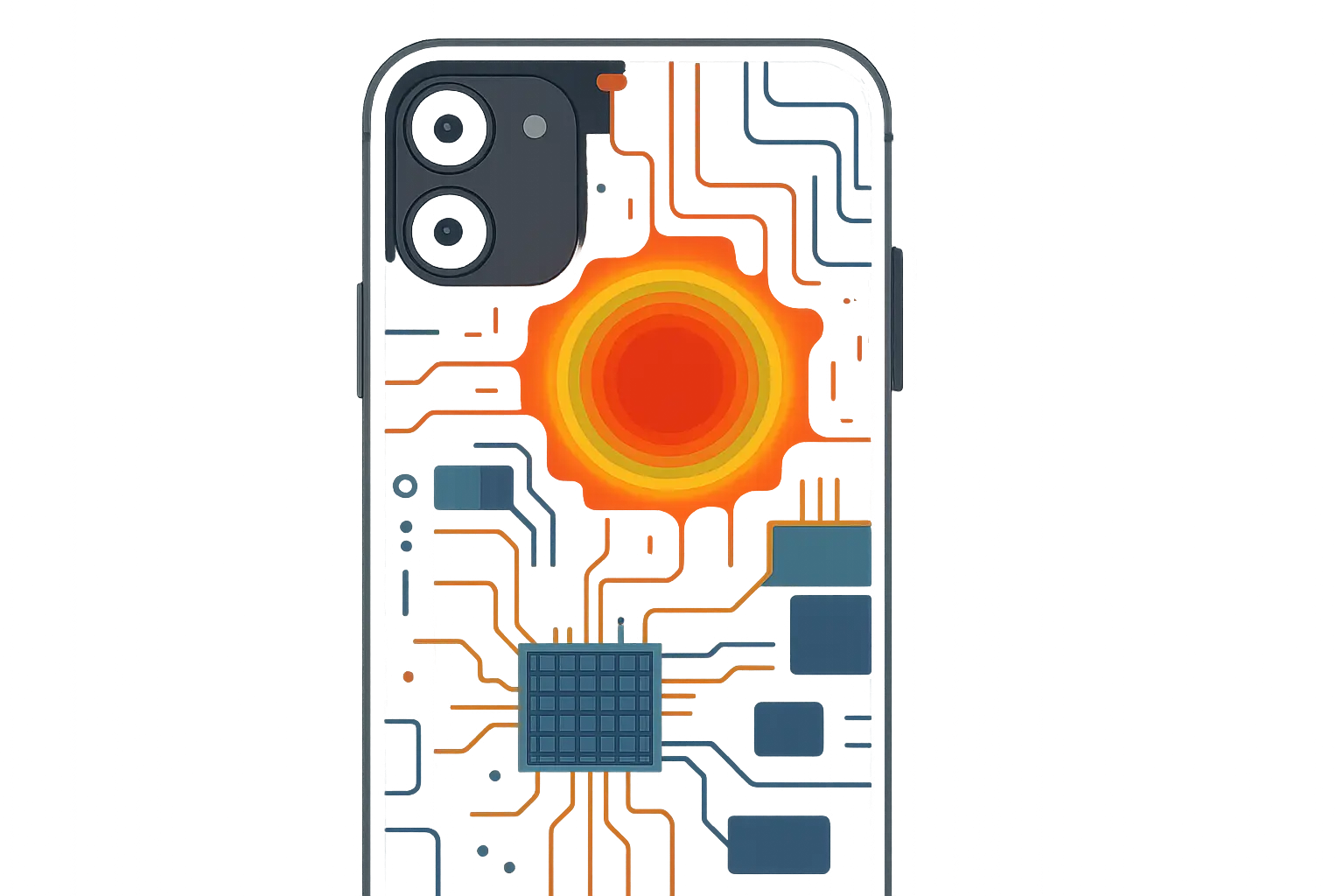
Even New iPhones Can Suck (2022-2024)
These five recent iPhone models prove that even modern devices can have battery problems. From camera-heavy usage to 5G connectivity issues, these phones show specific weaknesses that can ruin your day.
22. iPhone 14 Pro (Camera Intensive)
The iPhone 14 Pro's 48MP camera system creates massive power drain during photo and video sessions. Professional photographers find the 3,200 mAh battery completely inadequate for extended shooting.
23. iPhone 14 Pro Max (5G Problems)
Users with constant 5G connectivity experience rapid battery drain despite the huge 4,323 mAh battery. The 5G modem becomes a power vampire in areas with weak signal strength.
24. iPhone 15 (USB-C Growing Pains)
Early iPhone 15 models had battery drain issues related to the new USB-C port and charging optimization. The 3,349 mAh battery's performance varied wildly depending on which charging accessories you used.
25. iPhone 15 Pro (Heat Issues)
The fancy titanium construction creates heat management problems that hurt battery performance during intensive tasks. The 3,274 mAh battery becomes less efficient when the device overheats during gaming or video recording.
Which iPhone Has the Worst Battery Life: The Numbers
Here's the brutal truth about how these battery disasters perform in real-world usage. From capacity limitations to processor inefficiencies, these numbers reveal why specific models will ruin your day.
The iPhone SE (1st Generation) wins the "worst battery life" award by a landslide. Its pathetic 1,624 mAh battery combined with ancient A9 processor creates the perfect storm of terrible battery performance.
iPhone Mini models show decent processor efficiency but simply don't have enough battery capacity for anything beyond light texting. Power users should avoid these models completely.
The iPhone 14 Plus presents a mystery - its massive 4,325 mAh battery should provide amazing performance, but software problems prevented it from reaching its potential at launch.
iPhone Category |
Worst Offenders |
Battery Size Range |
Main Problems |
|---|---|---|---|
Ancient (2016-2018) |
iPhone SE (1st), iPhone 7, iPhone 8 |
1,624 - 2,915 mAh |
Old age, terrible processors |
Tiny (2020-2022) |
iPhone 12/13 Mini, iPhone SE (2nd/3rd) |
1,821 - 2,406 mAh |
Too small, not enough battery |
Feature-Heavy (2021-2023) |
iPhone 12 Pro, iPhone 13 Pro |
2,815 - 4,325 mAh |
Power-hungry features kill battery |
Awkward Years (2019-2020) |
iPhone 11 series, iPhone XS series |
2,658 - 3,174 mAh |
Technology transition problems |
Modern Problems (2022-2024) |
iPhone 14 Pro series, iPhone 15 series |
3,200 - 4,323 mAh |
Specific use cases destroy battery |
Here's what you can actually expect for screen time with these battery disasters:
Real Usage Hours |
iPhone SE (1st) |
iPhone 12 Mini |
iPhone 13 Pro (120Hz) |
iPhone 14 Plus |
|
|---|---|---|---|---|---|
Light Use (texting, calls) |
3-4 hours |
5-6 hours |
7-8 hours |
9-10 hours |
|
Normal Use (social media, photos) |
2-3 hours |
4-5 hours |
5-6 hours |
7-8 hours |
|
Heavy Use (GPS, streaming) |
1-2 hours |
3-4 hours |
4-5 hours |
6-7 hours |
|
Gaming/Video Recording |
Under 1 hour |
2-3 hours |
3-4 hours |
5-6 hours |
The iPhone SE (1st Generation) consistently ranks as which iPhone has the worst battery life across all usage categories due to its combination of minimal battery capacity and ancient hardware architecture.
Battery Life Solutions That Actually Work
Rokform's ecosystem of cases, mounts, and charging solutions transforms these battery disasters into manageable devices. Instead of constantly hunting for outlets, their products address the core problems that make certain iPhone models nearly unusable.
Power management becomes effortless with Rokform's motorcycle and vehicle mounts that keep your dying iPhone connected to power during GPS navigation - one of the biggest battery killers. Instead of your iPhone SE or iPhone 7 dying mid-route, Rokform's charging-integrated mounts provide continuous power.
Delivery driver James relies on his aging iPhone 8 for 10-hour shifts with constant GPS navigation. Before Rokform, his phone died by noon, forcing him to carry multiple power banks and causing delivery delays. Now, his Rokform vehicle mount with integrated charging keeps his iPhone 8 powered throughout entire shifts, eliminating downtime and improving his delivery efficiency by 25%.
Protection becomes crucial when your iPhone already struggles with battery life. Rokform's military-grade cases with 6-foot drop protection prevent additional damage that could worsen battery problems. Their polycarbonate construction provides maximum protection without interfering with wireless charging.
For professionals who rely on their devices in demanding environments, exploring law enforcement phone cases reveals how specialized protection can maintain device functionality even with aging battery systems.
Charging optimization helps squeeze every minute from degraded batteries. Rokform's magnetic wireless charging accessories work efficiently with struggling iPhones, providing optimal charging angles and heat dissipation that helps maintain whatever battery health remains.
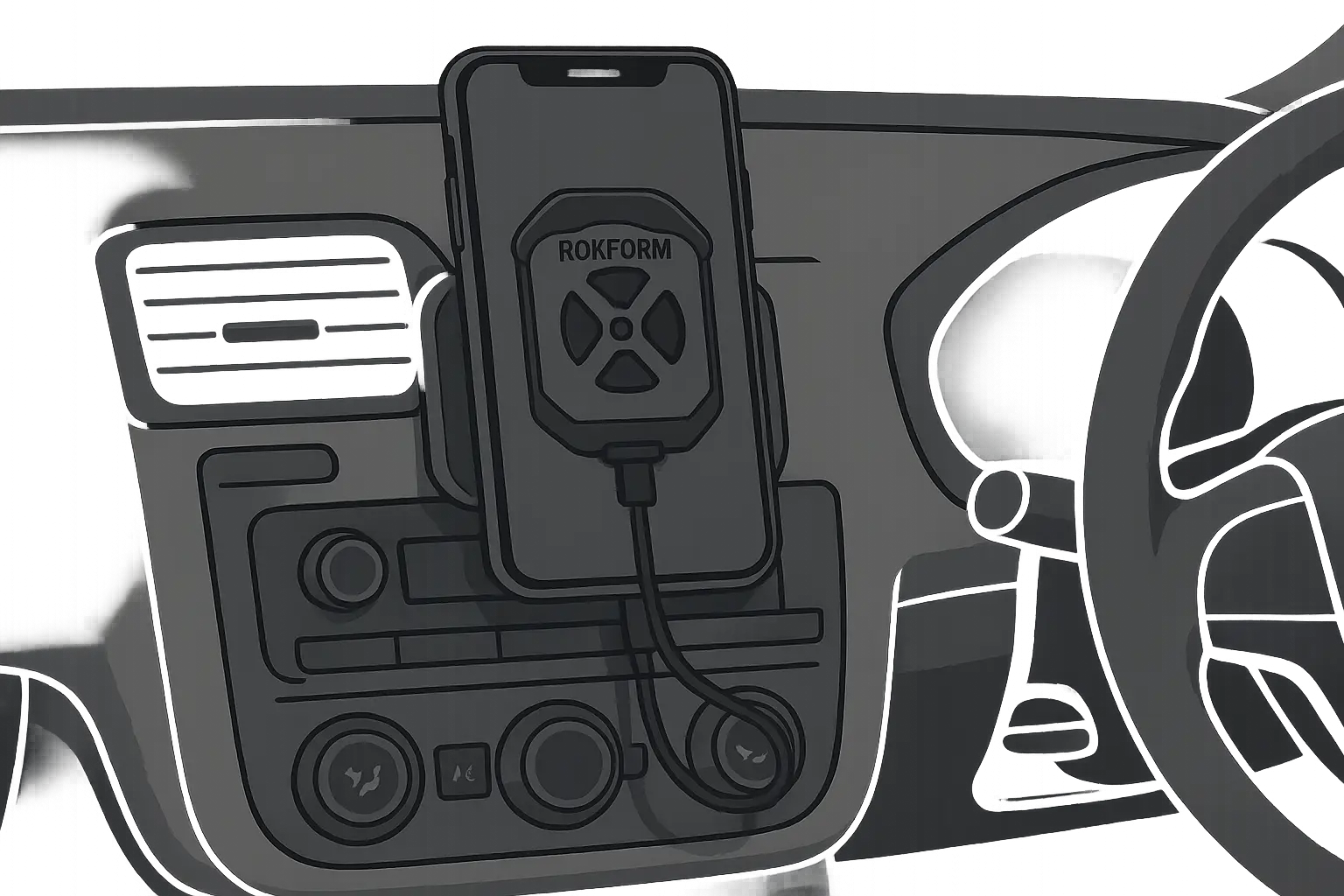
Professional use support addresses users whose iPhones can't sustain demanding workflows. Rokform's mounting systems allow external power connections while maintaining full device functionality - essential for iPhone models that fail during photography or videography sessions.
Vibration protection helps preserve existing battery life by limiting damage to internal components, including battery connections. This protection proves especially valuable for older iPhone models already experiencing significant degradation.
Understanding the importance of vibration dampeners becomes crucial for motorcycle riders using older iPhones, as excessive vibration can accelerate battery degradation and worsen already poor performance.
For users seeking power management solutions, discovering the best wireless chargers can help maximize charging efficiency for iPhones with compromised battery systems.
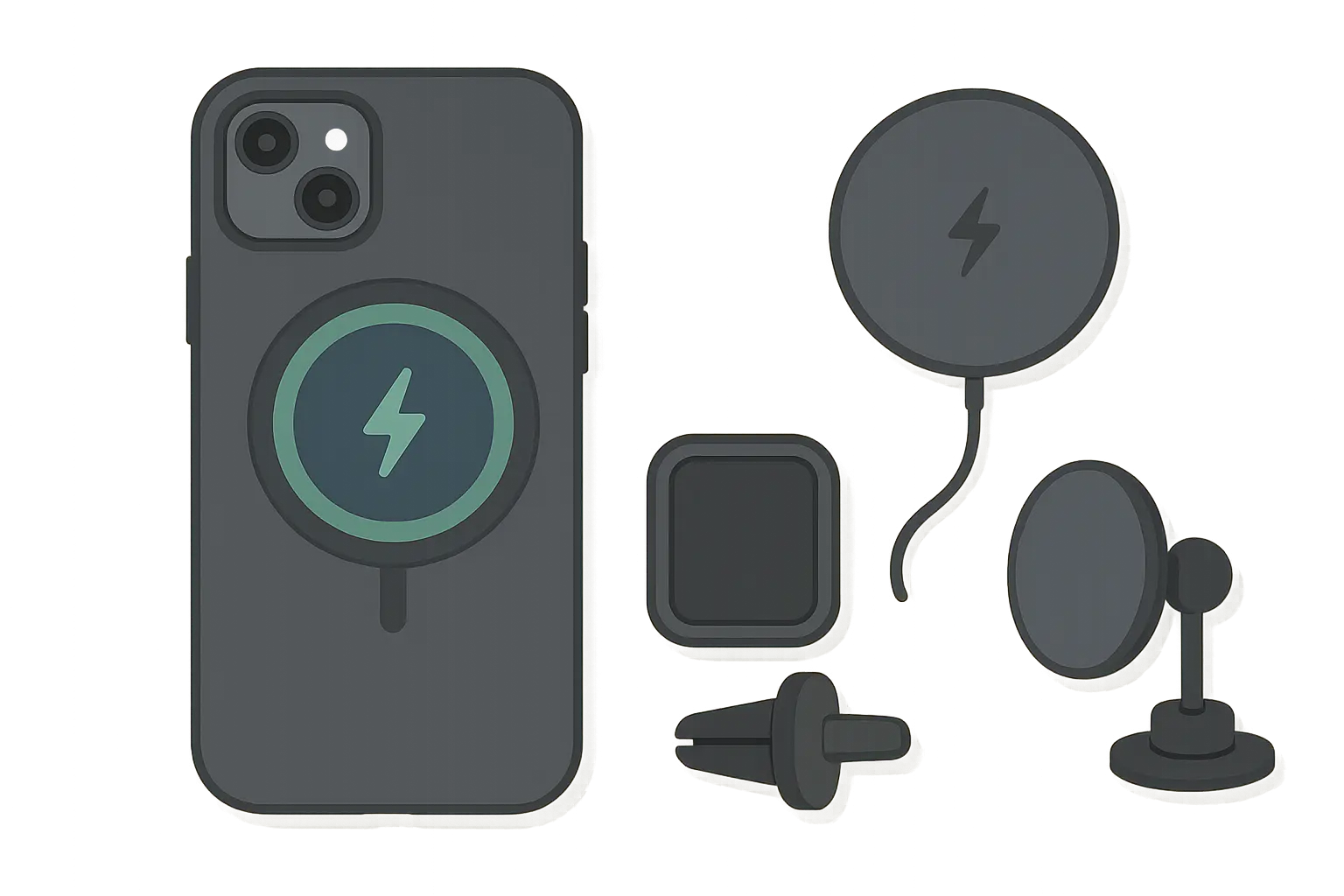
Bottom Line
The iPhone SE (1st Generation) definitively wins the "which iPhone has the worst battery life" contest with its pathetic 1,624 mAh capacity and 9-year-old technology creating an unusable daily experience. But 24 other iPhone models also struggle with battery performance for various reasons - from tiny form factors to aging hardware and software problems.
Understanding these limitations helps you make smart decisions about iPhone purchases and usage patterns. Whether you're stuck with a struggling device or considering an older model to save money, knowing the specific weaknesses helps you plan accordingly.
Not everyone can upgrade to the latest iPhone immediately. Sometimes you need solutions that make your current device work better and longer, which is exactly what proper accessories and power management accomplish for iPhone users dealing with battery life challenges.
For those considering their next upgrade, reviewing comprehensive iPhone vs Samsung comparisons can help identify devices with superior battery performance and long-term reliability.
If you're stuck with one of these battery vampires, consider a battery replacement, adjust your settings to low power mode, or start shopping for an upgrade. Life's too short to babysit a dying phone all day.
